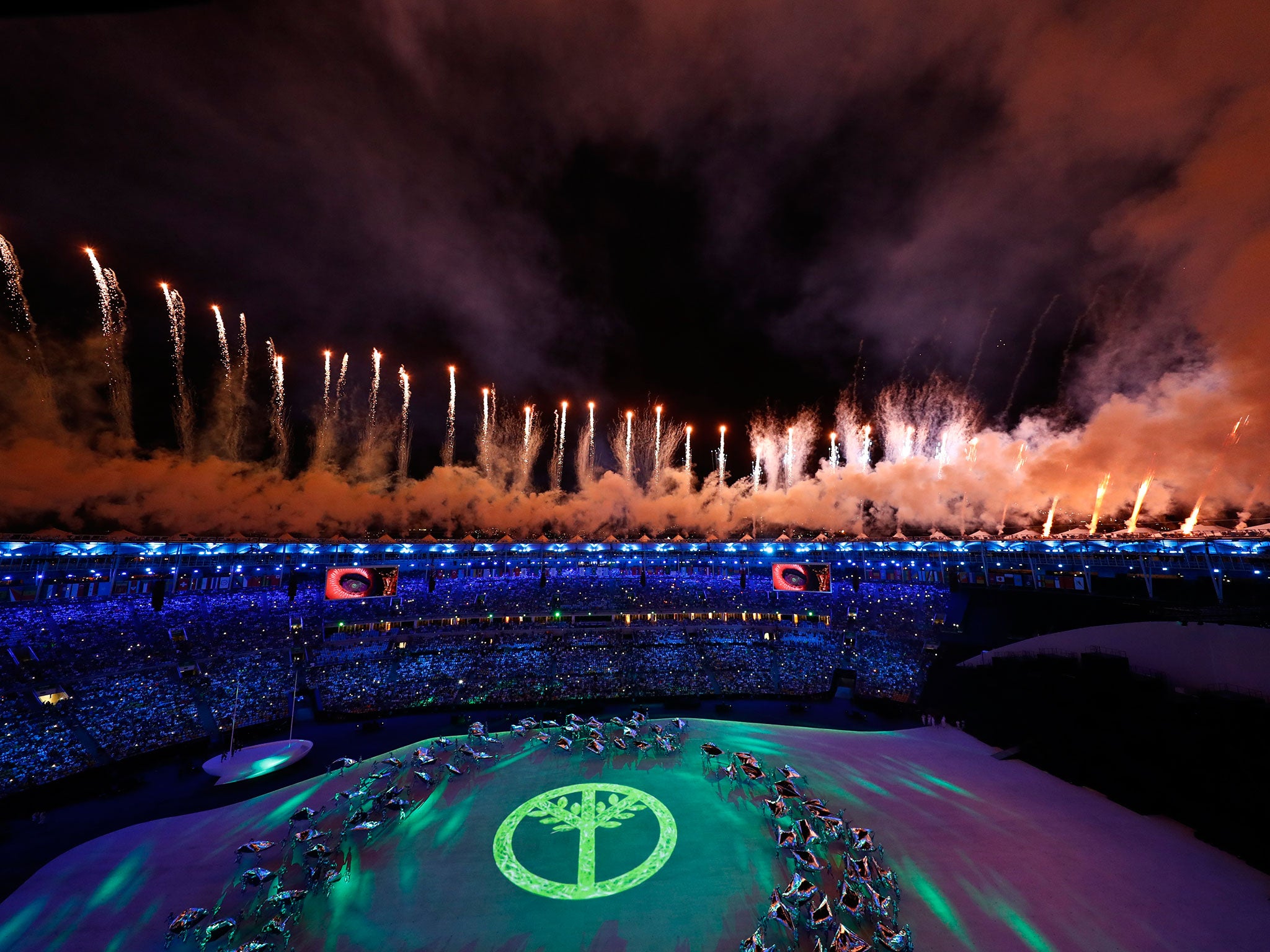Rio 2016: An opening ceremony of song, dance and escape - that didn't cost the fortune Brazil doesn't have
The Brazilian people had been promised “something special on a shoestring” and what better than the sound of music they love

Somewhere along the line, someone had to find a hell of a lot of tin foil and elastic bands but not much more than that.
After the story of the Olympic Games that this country cannot afford came the opening ceremony that replaced the usual sophisticated, expensive displays of nationhood with a simple demonstration of beautiful, cultural, ecological, musical Brazil.
It was the Olympic Carnival, the ceremony which had its audience up on their feet and dancing in the aisles by the end. When did we ever see that in an event of this kind? You can generally trust someone who only wants to talk about music and that’s really how it’s always been in this vast, chaotic land.
The number that got them up and moving was ‘Pais Tropical’ and though that might have been no more than a tune to those who’d stayed up to watch, when Carnival comes around it is the song which has Rio de Janeiro on fire.
Music everywhere - Eliza Soares, Mzeca Pagodinho, the curves of the Bossa Nova as model Gisele Bundchen, the self-styled Girl from Ipanema, walked across the stage. It was the first opening ceremony that might just need its own soundtrack.
The Brazilian people had been promised “something special on a shoestring” and what better than the sound they love. The national anthem was played by Paulinho da Viola on his acoustic guitar and a string quartet. It was not vainglorious because Brazil is not vainglorious.

None of which to say that the executive producer Marco Balich’s work was a few good tunes thrown together. Though there were space limitations in the Maracana which does not have typical Olympic dimensions — there is no track – the projections onto it were vivid and dramatic and seamless.
This is the space which Brazil’s Gods – the national football team – have stepped across for decades. Now the floor formed the screen across which the lights projected the kaleidoscopic emergence of a nation. Waves, glaciers, graphic art, the elastic bands - hundreds of them, 12ft long, cast in green - recreating the formation of dense, rich plant life that the indigenous tribes first manipulated.
As one creation rolled into another so came the ominous “arrival of the Europeans” - on their boats. The ones who colonised the place and have made life so complicated. It is an entire history spent assimilating those who alight here which helps maintain the modesty and inclusiveness of Brazilians and their capacity to laugh at themselves.
The Argentinian neigbours are, by comparison, loud and garish. There was a subtlety about how that quality was captured, too. The very Brazilian concept of "gambiarra" - improvising repairs using whatever parts are available had a scene of its one. They don’t mind admitting that things can be very Heath Robinson in this place.
The promotional blurb for the event described an “analogue inventiveness” as well as making the most of the “low tech spirit” and though that seemed unpromising, the value emerged as the night progressed. If it was inward-looking – Brazil examining itself and its way – then they were entitled to do that.
Merciful, considering the general unreliability of things and promises here, that no one was swinging in from the skies like ‘the Queen’ at London. The closest we had to a stunt was a paper model of the 14-Bis aircraft, designed by the Brazilian Alberto Santos-Dumont, which wafted around the stage for a while and was gone.
No edgy political messages, of course. No reminders that the Brazil’s economy is sliding into the kind of shitty waters which the marathon swimmers will be asked slip through in the day ahead. Nothing to say that the favelas regularly bear witness to the bullet-riddled cars shot at by police – the latest on Thursday – who kill citizens with impunity. Only a part of the story.

The only dangers raised were of the fluffy environmental kind that the west can feel good about reflecting on. When the moment came to present IOC president Thomas Bach and Brazil’s unpopular interim Brazilian President Michel Temer there was a change to the plan in the programme.
Bach alone was presented and no one mentioned Temer, preventing the chorus of boos that had feared. The precariousness of public sentiment is also reflected in the marked reluctance to reveal how much this event cost. When everything is finished, a total figure for the ceremonies of Games and Paralympic Games will be provided, the people have been told.
That will come at the time, soon enough, when Brazil returns to the interminable domestic plot of political incompetence.
For a few hours last night there was no negativity, no boos for the Russian flag bearers and athletes who should not be here. Instead a means to escape, sing, dance and give thanks, which did not cost the fortune that the country doesn’t have.
Join our commenting forum
Join thought-provoking conversations, follow other Independent readers and see their replies
Comments
Bookmark popover
Removed from bookmarks